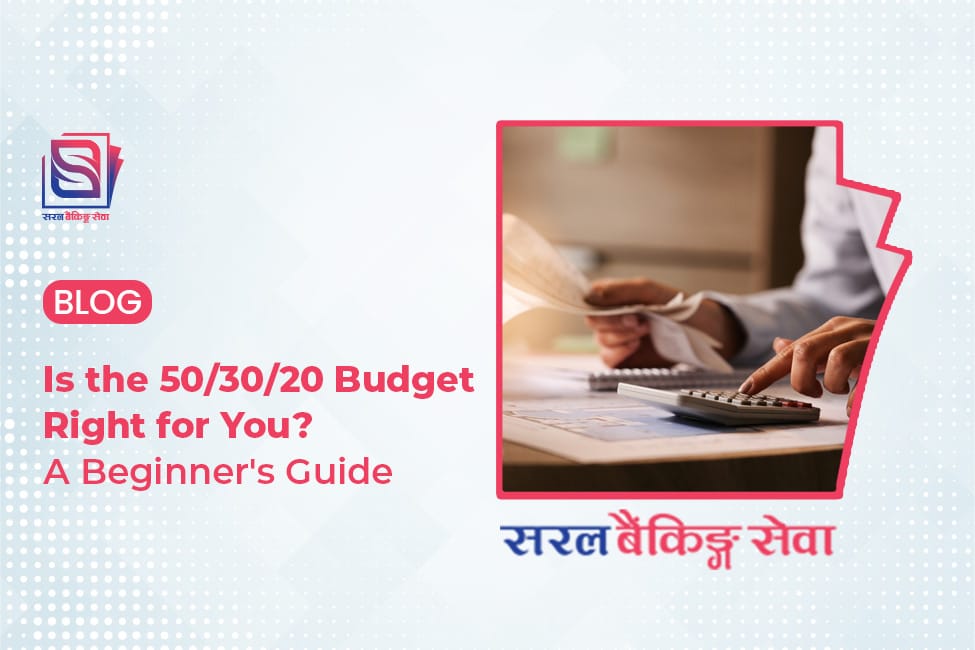
In order to get started, understand your income first. How much do you earn in a month? Understanding how much you make each month first sets the guidelines for the rule. The 50-30-20 rule says that you put 50% of your money towards needs, 30% toward wants, and 20% toward savings. Here’s a brief breakdown:Needs: 50%In this rule, needs will mostly take half of your budget. These are the expenses that must be met after your salary/income is credited in your accounts. Some of these expenses might include: Food/Groceries / Basic ClothingRent/HousingHealth related expensesTransportationMinimum debt paymentsThese are the things that you
cannot live without. Your minimum credit card payments or a loan payment might also fall in this category.Wants: 30% Wants usually comprises of things that you spend by choice. The items might include non-essential things such as:Going out for dinner/moviesYour hobbiesClothing upgrades or gadget upgradesEntertainmentSavings and Debt: 20% The 20% of your budget should go towards securing a good future for yourself or your family. If you have high interest debt, paying towards it might also fall in this category. Emergency funds, retirement funds, etc. are some examples of this category. You can use SBS 50/30/20 calculator to divide your net income within seconds. Adopting this rule in Nepalese ContextAdjusting Cost of Living: The cost of living in Nepal can vary depending on location (villages vs city areas) and lifestyle choices. For instance, if you are living in Kathmandu and have to pay rent, your "Needs" category might need a slight increase to cover higher rent costs.Addressing Lower Income Levels: For many people in Nepal, a 20% savings goal might not be possible at all. Start smaller (even 5% or 10%) and gradually increase it as your income grows or expenses decrease. First, focus on clearing your high-interest debt first in order to be able to save your earnings later.Prioritizing Debt Repayment: If you have taken up high interest debt like a personal loan, or a credit card debt, you must focus on paying those first. In doing so, you free up the burdens first and can hit long term savings goals later.Factoring in Family SupportIn Nepal, joint families are a norm. You might also require to take care of your loved ones, might be your brother/sister as well as your parents/ grandparents. You must adjust your budget to make room for such expenses or you might also receive financial support from your parents as well.Challenges and SolutionsIrregular Income: If you are a seasonal worker, or a father sending remittance back home, you might have fluctuating income. Some months you might send more money and some months, it might be less. Even for farmers in Nepal, the income depends upon crop seasons. In these cases, you must use your higher-earning months to boost savings and create a buffer for less earning months.Unexpected Expenses: Medical emergencies or family events can eat away your budgets. Emphasize building an emergency fund (part of the 20%) for such situations.Cultural Spending Pressures: In Nepal, societal pressures are huge in terms of performing cultural functions. Weddings, festivals, and social obligations can put a strain on budgets. Plan for these using saral banking sewa’s financial tools and allocate funds within the "Wants" category.Example ScenarioLet's say you are a young professional living in Kathmandu and you earn NPR 60,000 per month after deducting govt taxes: Here’s a brief division on how you can manage the rule, additionally you can also use the SBS 50/30/20 calculator and set your budget accordingly in just a few seconds :Needs (50%): NPR 30,000 (house rent, food, transportation, etc.)Wants (30%): NPR 18,000 (going to see movies, eating out, hobbies)Savings/Debt (20%): NPR 12,000 (emergency fund, retirement, etc)Important Note: The 50/30/20 rule is a helpful guideline, but not a rigid thing for you to follow aggressively. Always check your priorities first, then allocate as per your convenience. This rule does help you gain financial freedom in the long run.
Sign up to discover Saral Banking Sewa